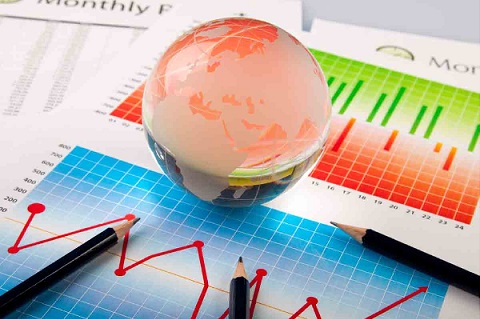Global equity markets fell substantially in August, as investors were left to deal with a plethora of negative news. The trade war between the US and China continued to escalate, Brexit uncertainties multiplied after UK PM Boris Johnson suspended parliament, Germany began showing plausible signs of an imminent recession and an inversion in the US yield curve sparked concerns of a slowdown in US growth. Emerging markets suffered more than developed markets as investors fled for safe-haven assets, with bonds and gold the biggest beneficiaries.
In South Africa, global risk aversion and concerns around slower growth and higher government spending, particularly on bailing out indebted SOEs, weighed on the market, with the likelihood of a further ratings downgrade seeming inevitable.
US
In the US, the Trump administration raised the ante in the trade war with China, announcing new 10% tariffs on US$112bn worth of Chinese goods, including clothing and shoes, starting 1 September. Talks between the two nations are set to resume in mid-September after the previous round of negotiations concluded without a resolution.
However, the US economy continued to show signs of advancing (albeit at a slower pace), with revised GDP. Consensus growth forecasts for 2019 and 2020 were revised down by 0.2% to 2.3% and 1.8% respectively. US stock markets reflected the more bearish outlook, with all three major US bourses in the red.
UK AND EUROPE
In Britain, Prime Minister Boris Johnson moved to suspend parliament until mid-September, sparking fears of a no-deal departure from the EU on 31 October. This sent the pound sterling and UK stocks sharply lower for the month.
Germany’s coalition government announced that it would be prepared to ditch its balanced budget rule and take on new debt in order to avoid recession. This still did not help prevent German (and some other European) bond yields from falling further into negative territory, leaving investors and policymakers wondering what the impact could be on the economy of an extended period of negative interest rates: investors continue to accept guaranteed losses on their bond holdings for the privilege of lending money to governments.
Italian stocks rallied after President Sergio Mattarella gave the greenlight for the 5-Star Movement and the Democratic Party to form a new coalition government.
ASIA
China started the month with a stark warning in its trade war with the US by allowing the yuan to weaken to above 7 versus the US dollar, reaching its lowest level in 10 years. Then in response to Trump’s new tariffs for 1 September, authorities announced additional tariffs on US$75bn worth of US goods, including 5% on US crude oil. Meanwhile, the anti-government protests in Hong Kong grew in size and intensity, putting increasing pressure on the country’s consumer sales and economic growth generally, as well as on the stock market. Government officials cracked down more severely, while stating that the activities had begun to show “sprouts of terrorism”. US President Trump commented on the protests, suggesting that China’s failure to find an amicable resolution could impact trade negotiations.
GLOBAL MARKET RETURNS
Looking at global equity market returns (all in US$), the MSCI All Country World Index returned -2.3%. Developed markets outperformed emerging markets.
The S&P 500 produced -1.6%, the UK’s FTSE 100 returned -4.6% and Japan’s Nikkei 225 delivered -1.5%.
Among the larger emerging markets, the MSCI India returned -2.9%, MSCI China -4.2% and MSCI Russia -4.7% (all in US$).
SOUTH AFRICA
In South Africa, equities and the currency came under pressure on the back of the escalating trade tensions and renewed concerns over a slowdown in global growth. Factors weighing on investor sentiment included worries over the government’s growing National Budget deficit; higher spending on bailing out Eskom and other SOEs; and the tabling of the new National Health Insurance bill with parliament (which is estimated to cost the economy around R256bn per year). Ratings agency Moody’s criticised Eskom’s capital structure – describing it as “unsustainable”, and emphasised its worries over SA’s growth rate. This drove the rand over R15/US$ for the first time in two months. National Treasury, meanwhile, released its economic policy paper in which it outlined proposed actions to cut costs and stimulate economic growth, a move that was met with mixed reviews by the market.
The FTSE/JSE All Share Index returned -2.4% in August.
The rand depreciated sharply against all major currencies for the month, losing 7.1% against the US dollar, 6.5% against the pound sterling and 5.9% against the euro.
The average high equity balanced fund returned -0.5% and the average low equity income fund returned 0.4%
Adapted article by Prudential Investment Managers

